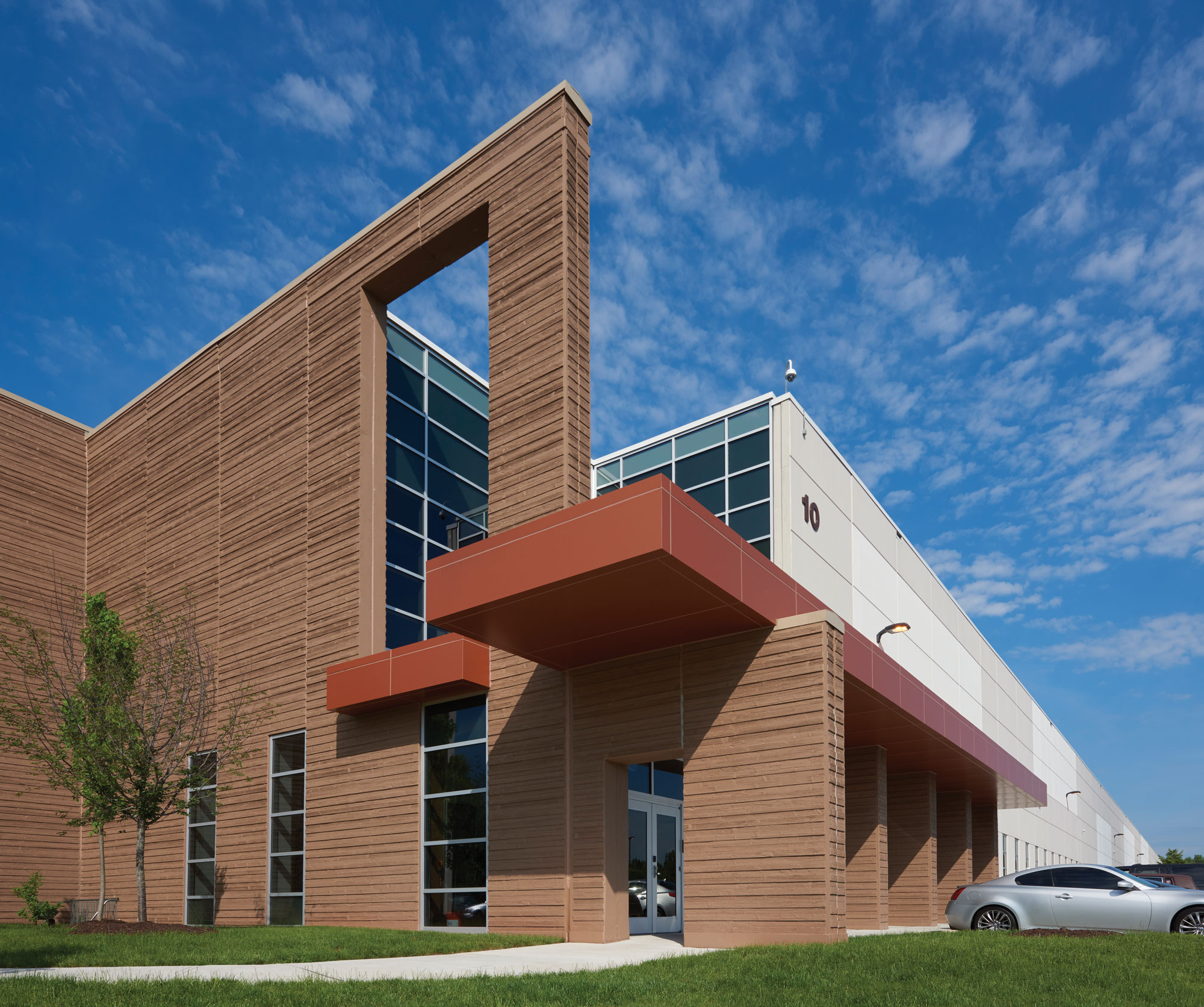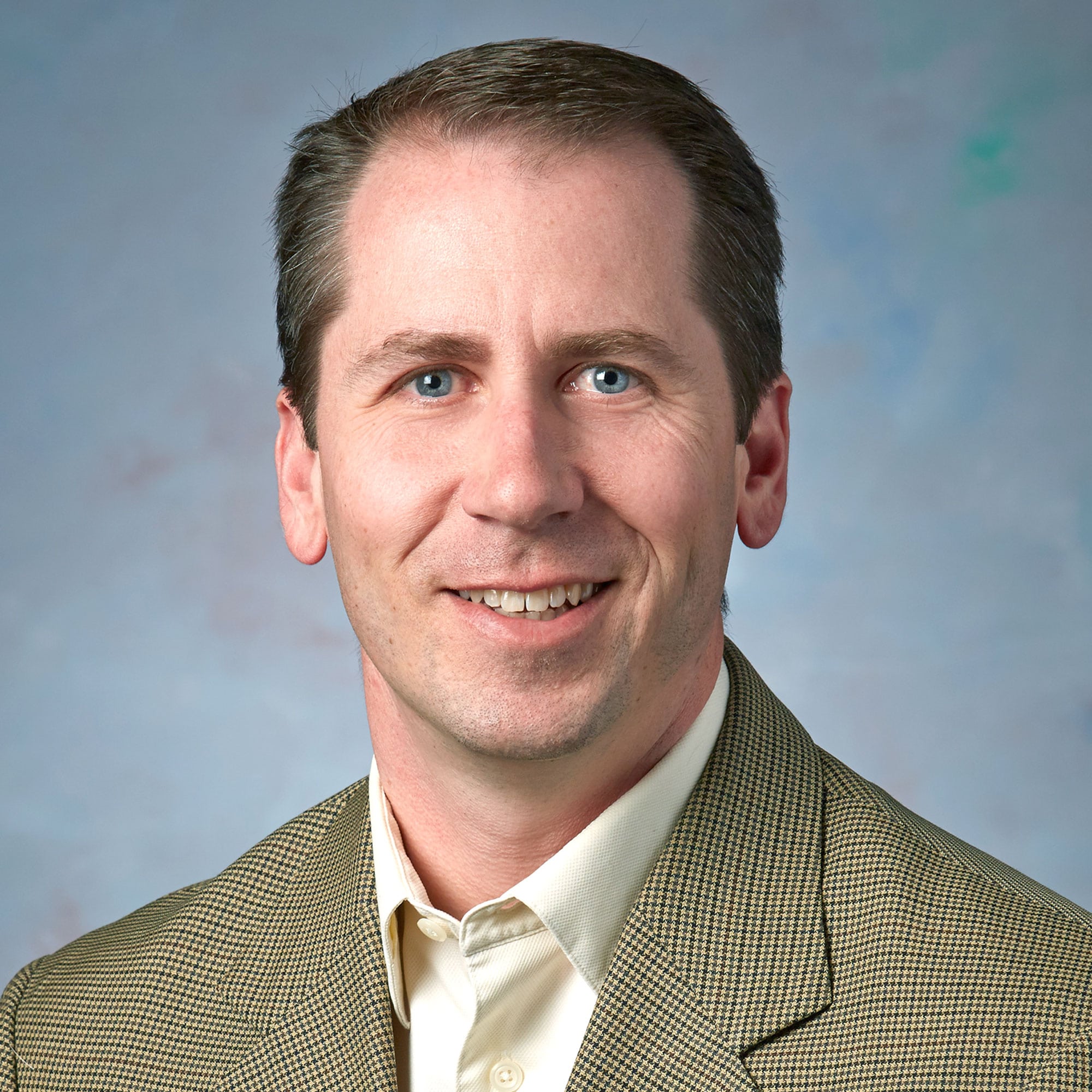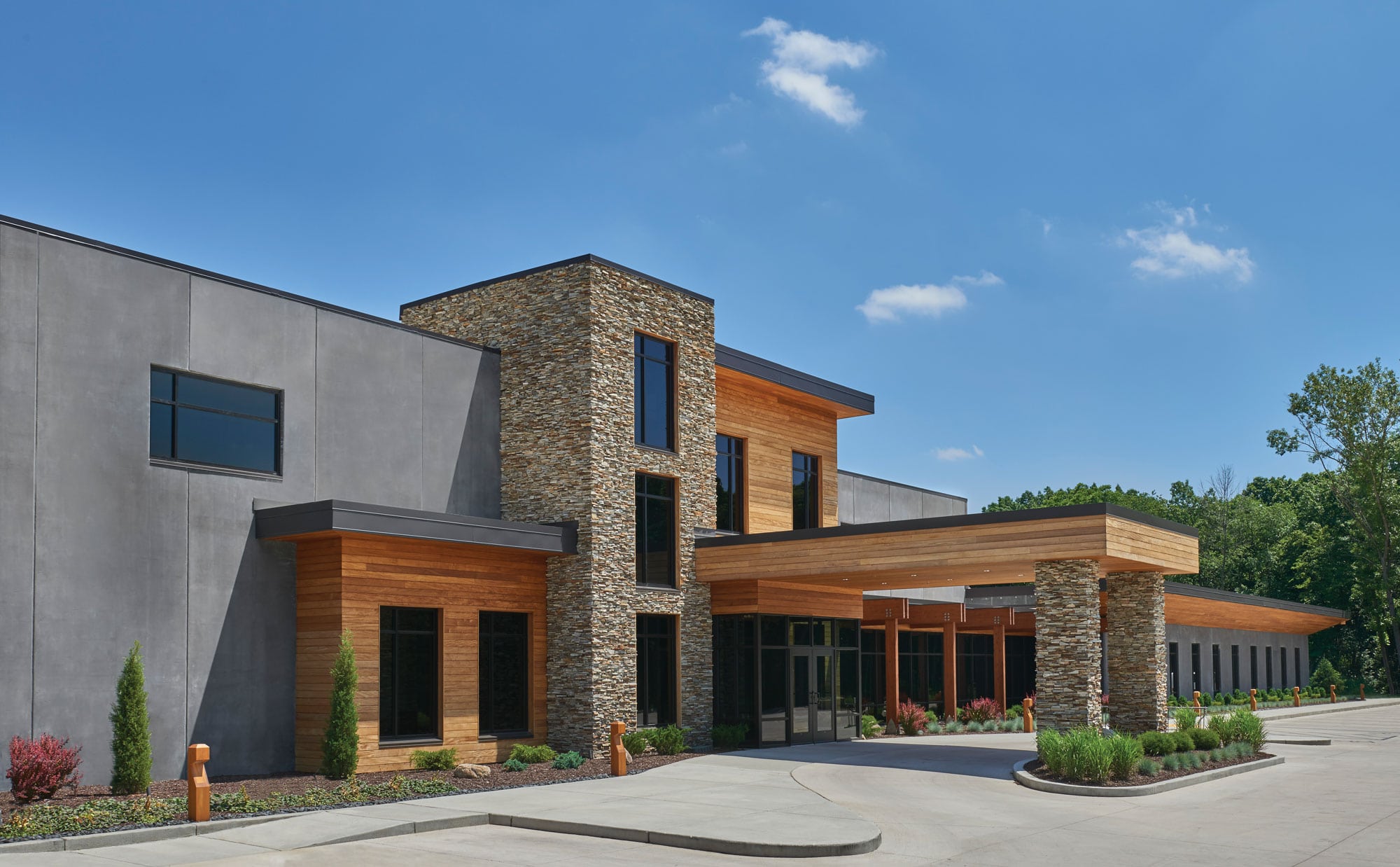
[Photo: Courtesy of Fabcon]
How one question has led to five years of growth for Fabcon
 Download a PDF of this story.
Download a PDF of this story.
To learn more, visit Fabcon Precast.
With nearly 1,000 employees working in four manufacturing plants and constructing in 38 states, Fabcon is not simply a precast wall manufacturer, though they’re also the biggest of that in the nation. The 47-year-old American company is also changing the way buildings go up—quickly, efficiently, and precisely—and setting an example for what it means to care for your customers and employees through constant communication and more benefits.
Values That Matter
Tom Kuckhahn joined the company shortly after his time at the University of Minnesota. He started as a structural designer, followed by a stint as the first Fabcon manager of R & D. He then moved through the ranks as director of engineering, vice president and, in 2016, president and CEO. He says Fabcon’s values are a major reason he’s stayed for 20-plus years.
Some people are surprised to learn the breadth of what goes on at Fabcon—that it’s truly a company with an appetite for finding a better way to do things. Kuckhahn started in the fall of ’94, and by the spring of 1995, the company had a new CEO—a 30-something who was ready to throw gas on the spirit of innovation already at Fabcon. “That’s still central to who we are today,” he says.
Kuckhahn is a problem solver at heart, and there’s no shortage of problems to solve in manufacturing and construction. “We believe there’s always a better way,” he says. “It’s not just about how best to trowel concrete; this applies to how you run your back office, onboard employees, and communicate across departments as well.”
He also acknowledges that employees have lives outside of Fabcon. “When you’re asking someone to get the job done, they have to figure out how to do that and continue to live their life.” Ideals like these carry over from the original founders, David Hanson and Gerald Rauenhorst. The company’s commitment to that is clear, from its unlimited vacation policy to flex time to work from home. “The job isn’t necessarily about me seeing your butt in the seat for 40 hours in the week,” Kuckhahn says. “It’s about getting the job done.”
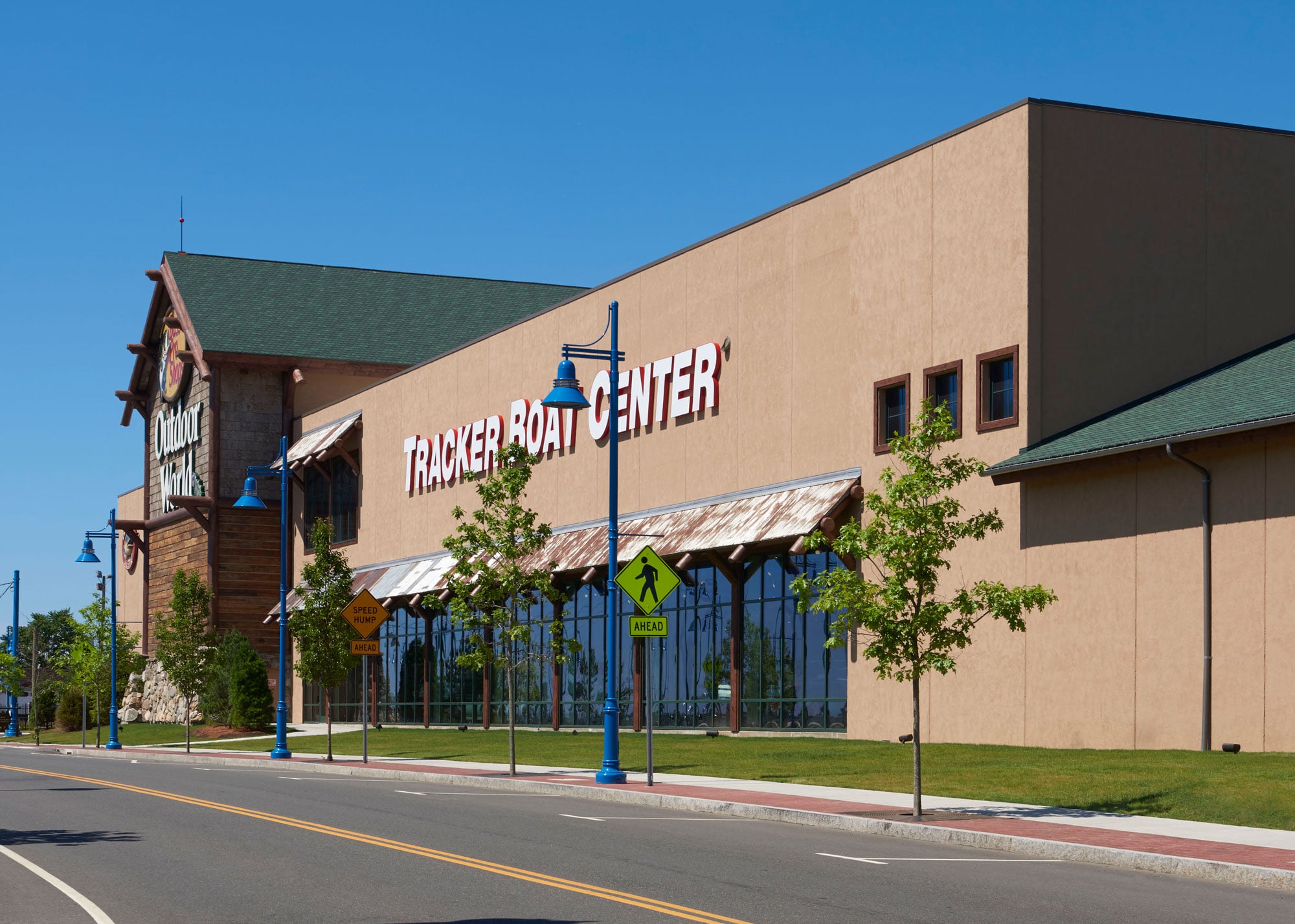
[Photo: Courtesy of Fabcon]
“It’s not just about how best to trowel concrete; this applies to how you run your back office, onboard employees, and communicate across departments as well.”
Tom Kuckhahn, Fabcon CEO
Doing more to hire and retain the right people is essential, and providing opportunities to develop existing talent is a major focus. Fabcon has enhanced its employee screening tools to align with its values and implemented new talent development processes. For example, the recent addition of a corporate recruiter and training for hiring managers has moved the candidate evaluation process from focusing exclusively on skills to gaining work style, critical thinking, and problem-solving insights. For those who become lead contenders in certain roles, the evaluation process is followed by an assessment tool that benchmarks compatibility with not only job function, but culture and team members, too. Coupled with talent development tools, employees can define their paths and access the resources they need to achieve their goals. Fabcon also evaluated compensation systems and improved its 401K and profit sharing programs. “We want to make sure people can make a career out of Fabcon.”
Of course, the company would be nowhere if not for its biggest values—safety and quality. These are non-negotiable. “You don’t get to be in the construction and heavy manufacturing business and not have safety as a strong priority,” Kuckhahn says. “You have to be able to work safely first and foremost, and you have to be able to make a high-quality product.”
Continued Growth
Recently, Fabcon went through a change in ownership that again set the company on a growth curve, as it transitioned from private family ownership to private equity in September. Now the company looks to where it may be able to expand to reach more customers. Fabcon’s precast concrete wall panels are very well insulated, so anyone with a large single-story building—think office warehouses, distribution centers, manufacturing facilities, data centers, and even theaters—and significant heating or cooling needs in an area with little seismic activity can benefit. The company currently has manufacturing sites in Pennsylvania, Ohio, Minnesota, and Kansas, and 80% of its projects are within 200 miles of a plant, meaning they can reach job sites in as many as 33 states.
The demand for Fabcon is clear, as the company is on pace for a record year for the fifth year in a row. Fabcon expects to put up 14 million square feet of wall panels this year, and the Pennsylvania plant is expanding by a million square feet.
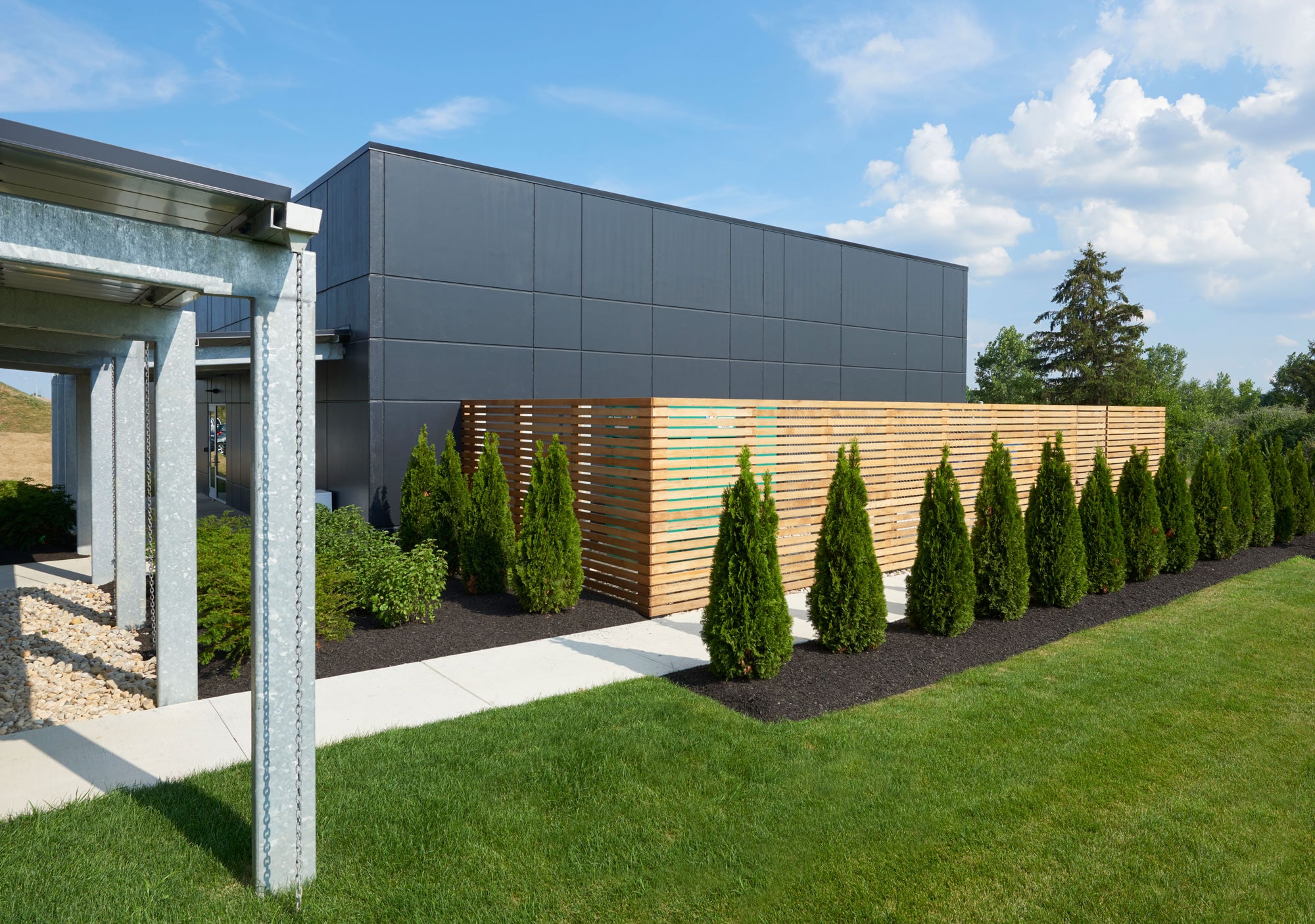
[Photo: Courtesy of Fabcon]
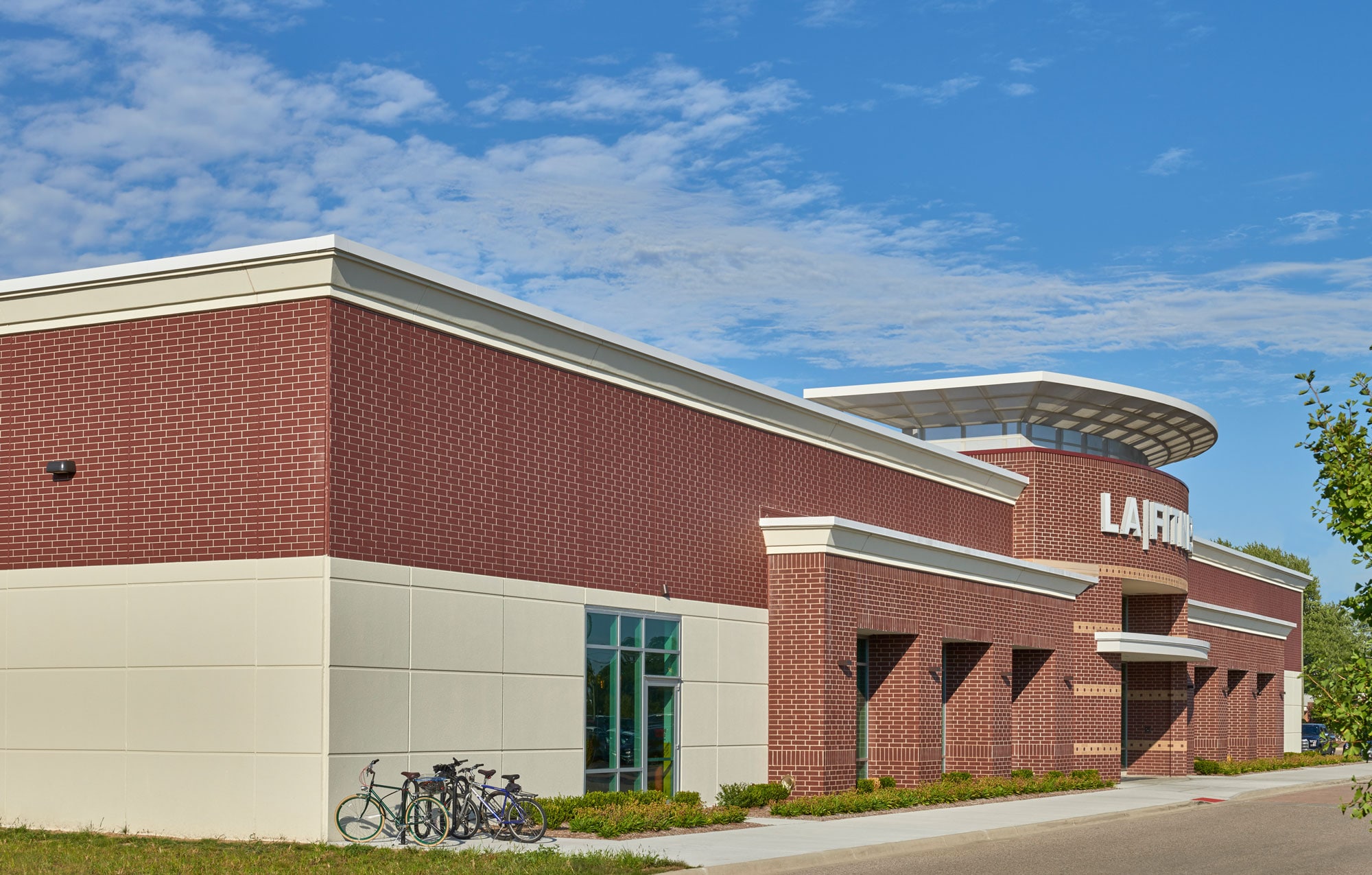
[Photo: Courtesy of Fabcon]
E-commerce is driving much of that. Just think about the sheer amount of orders going through Amazon or its competitors. They all need warehouses, and many of those will need to be new to meet demands like automated storage and retrieval and flat, usable space. It’s a sweet spot for Fabcon, who gets buildings like these up fast. “Warehouse construction year over year is up 20%. We’ve been building a lot of them.”
Inspiring Innovation
Fabcon hasn’t always focused on precast concrete wall panels, though. Originally, the company made a precast concrete floor plank that ended up being used for walls for many years—until, that is, staff said, “There has to be a better way.” In 2001, Fabcon developed VersaCore, giving buildings a higher percentage of recycled-product content, a higher level of energy efficiency, and load bearing wall panels that supported large equipment loads. Since then, Fabcon has gone through three product iterations to even further improve, resulting in the current VersaCore+Green wall systems, which incorporate up to 58% recycled content. And because the panels are lighter, fewer hauling trips are required, reducing not only cost, but carbon footprint as well.
He says the original, decades-old product also had physical limitations—namely that most panels were 8 feet wide. If you wanted something smaller, you had to take the 8-foot panel and cut it down, tossing out the extra. If you wanted a wall with an opening, you had to make the whole panel and cast out the part you didn’t need. With VersaCore, you can cast openings right then and there the way you want them, reducing waste. “We began to implement more and more little ideas that saved money for both Fabcon and the customer. It really set us on a different path and drove innovation.”

[Photo: Courtesy of Fabcon]
Lessons Learned
Kuckhahn knows how you roll products or initiatives out is as important as the ideas themselves. “If we roll things out the wrong way, they won’t be effective. I’ve learned to engage our employees a lot sooner and make them part of the idea generation process, make them part of the problem-solving process. That’s really a mentality that is central to lean manufacturing. And we’ve continued to embrace that.”
In its day to day, Fabcon uses a method called “Managing for Daily Improvement” to assess the company’s core KPI goals up close. “Let’s break it down to crew level. I may have a high-level corporate KPI for efficiency that doesn’t mean anything to guys setting up the bed to be cast today. Ask them, ‘What does efficiency look like to you? Let’s set goals. Let’s talk about what’s coming up, what didn’t work well yesterday, and how to fix that. Let’s track that.’” He says it’s not only part of treating people with respect; it’s furthering that nurturing spirit of innovation by engaging people. The changes you want to accomplish are a lot more likely to stick if the employees were part of the process.
BETTER PRODUCTS
“We make the lightest, strongest wall panel on the market,” Kuckhahn says. Using a Fabcon panel, you don’t need exterior columns, so you save on materials and cost. Because the panels are light, they’re also more cost-effective to ship. And since the wall panels are produced in one of four manufacturing plants across the U.S., they can be shipped to job sites across more than half the country. “If you’re Walmart and you want to build a store in any one of these 30-plus states, you can choose Fabcon and get the same experience, the panels are going to look the same. There’s a lot of value in that.”
Plus, Fabcon puts up the panels themselves. Fabcon engineers and produces its panels in one of its U.S. production facilities and ships the finished product to the job site in as little as eight weeks, whereas a smaller outfit could take months longer. You don’t have to hire another crew to erect the panels once they arrive onsite, like with some precasters. Fabcon brings a small team—five or six people—to set its own panels, to further save time and labor, making it even easier to do business.

